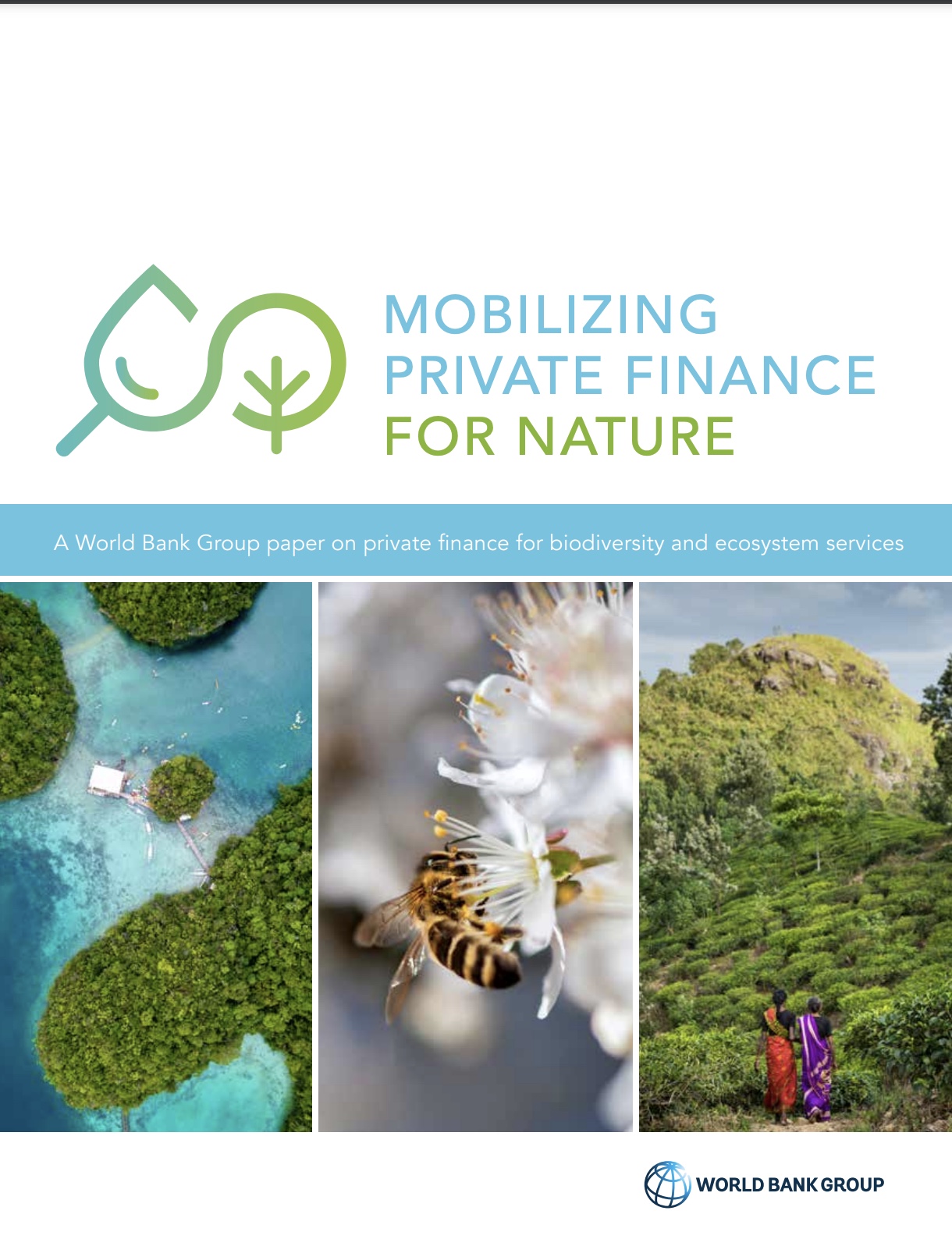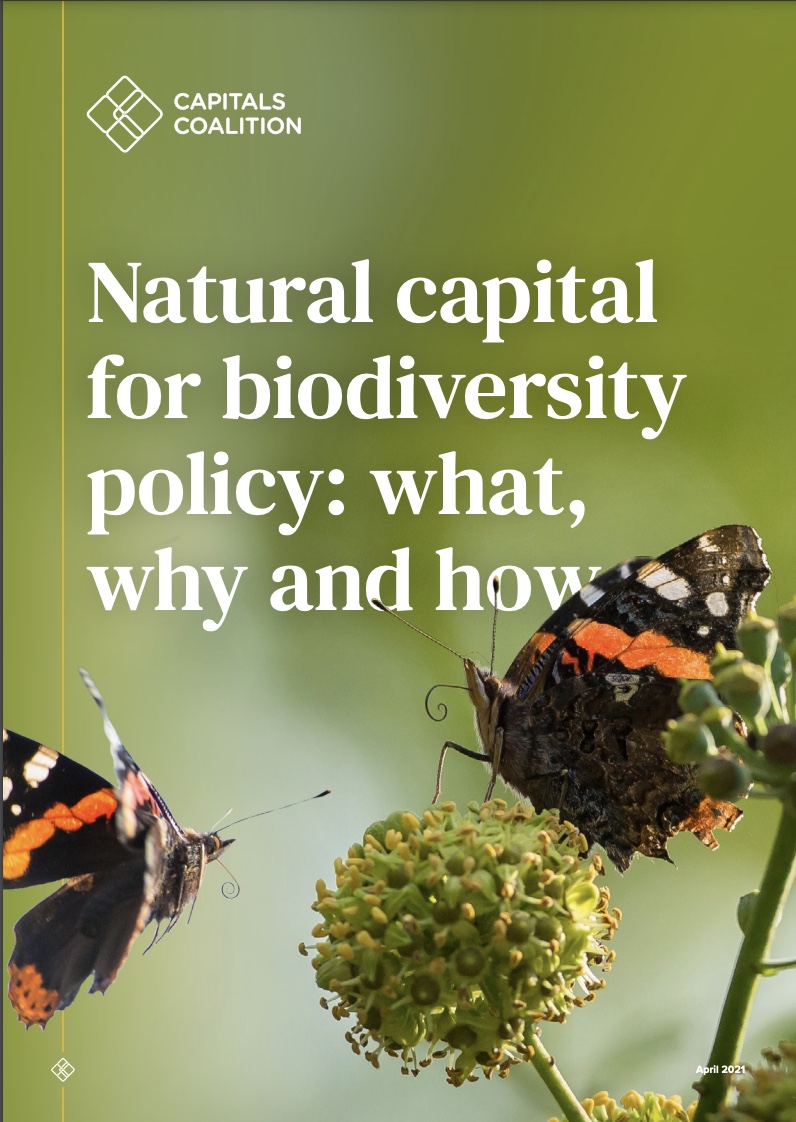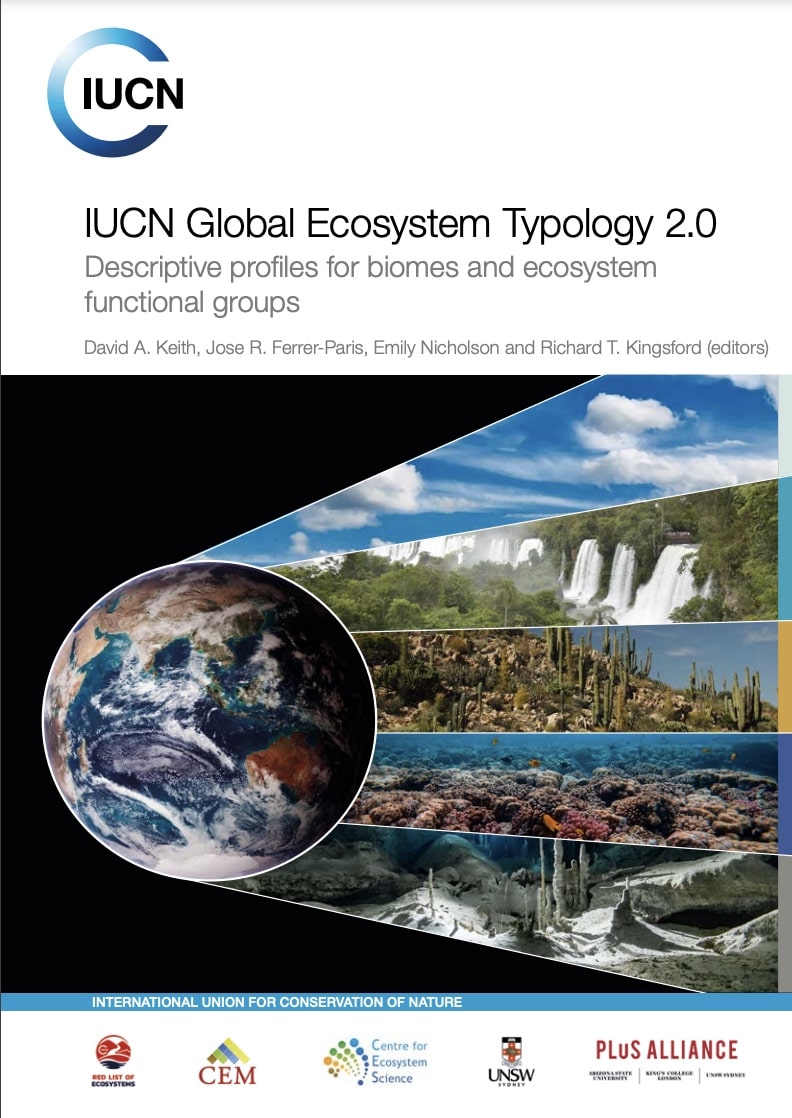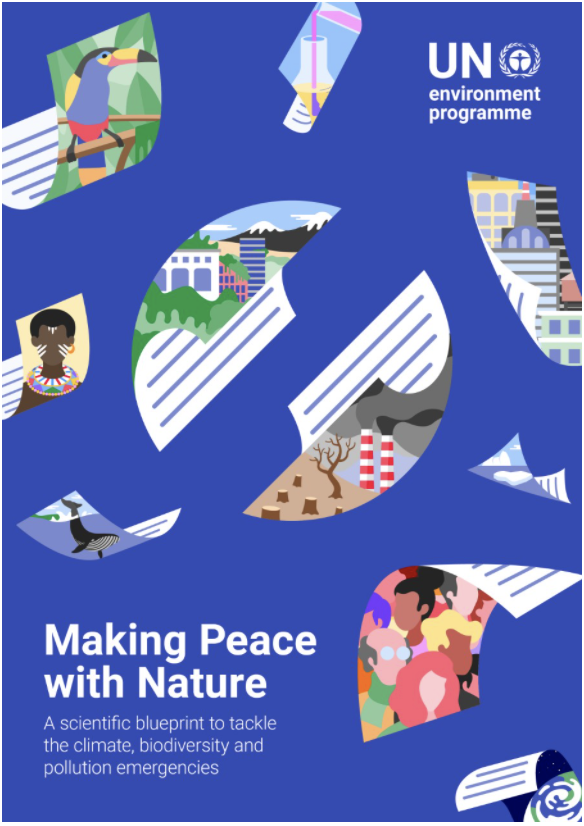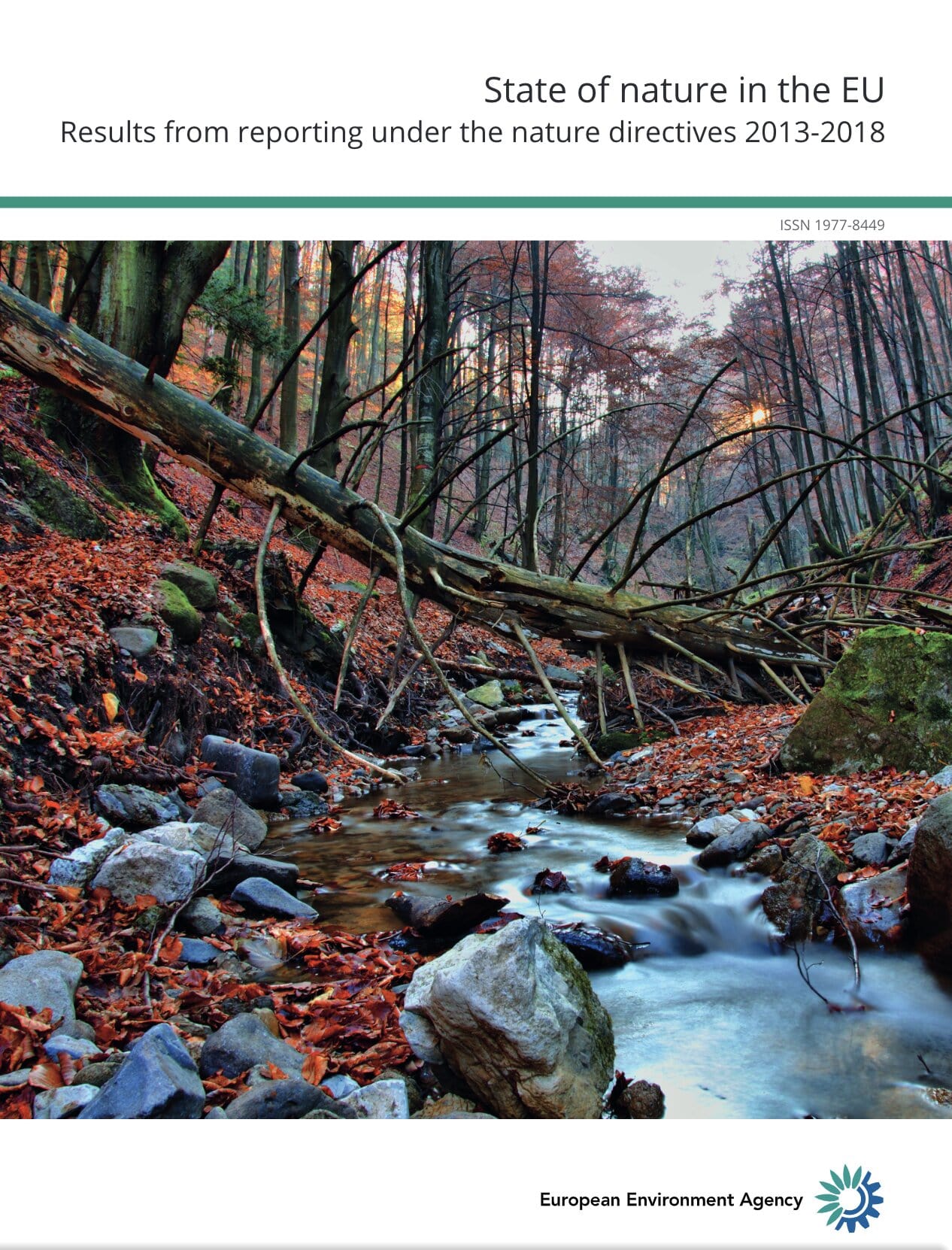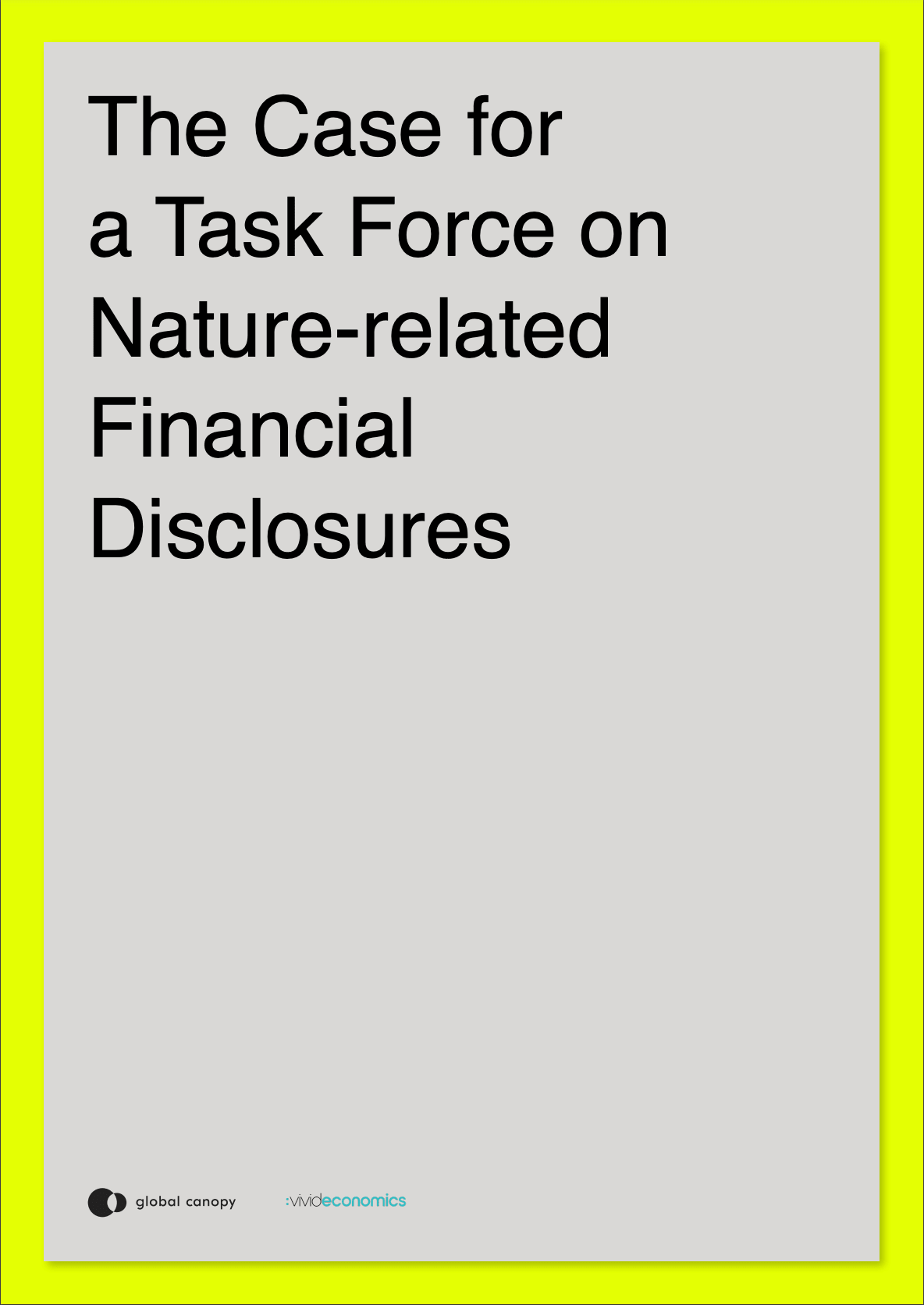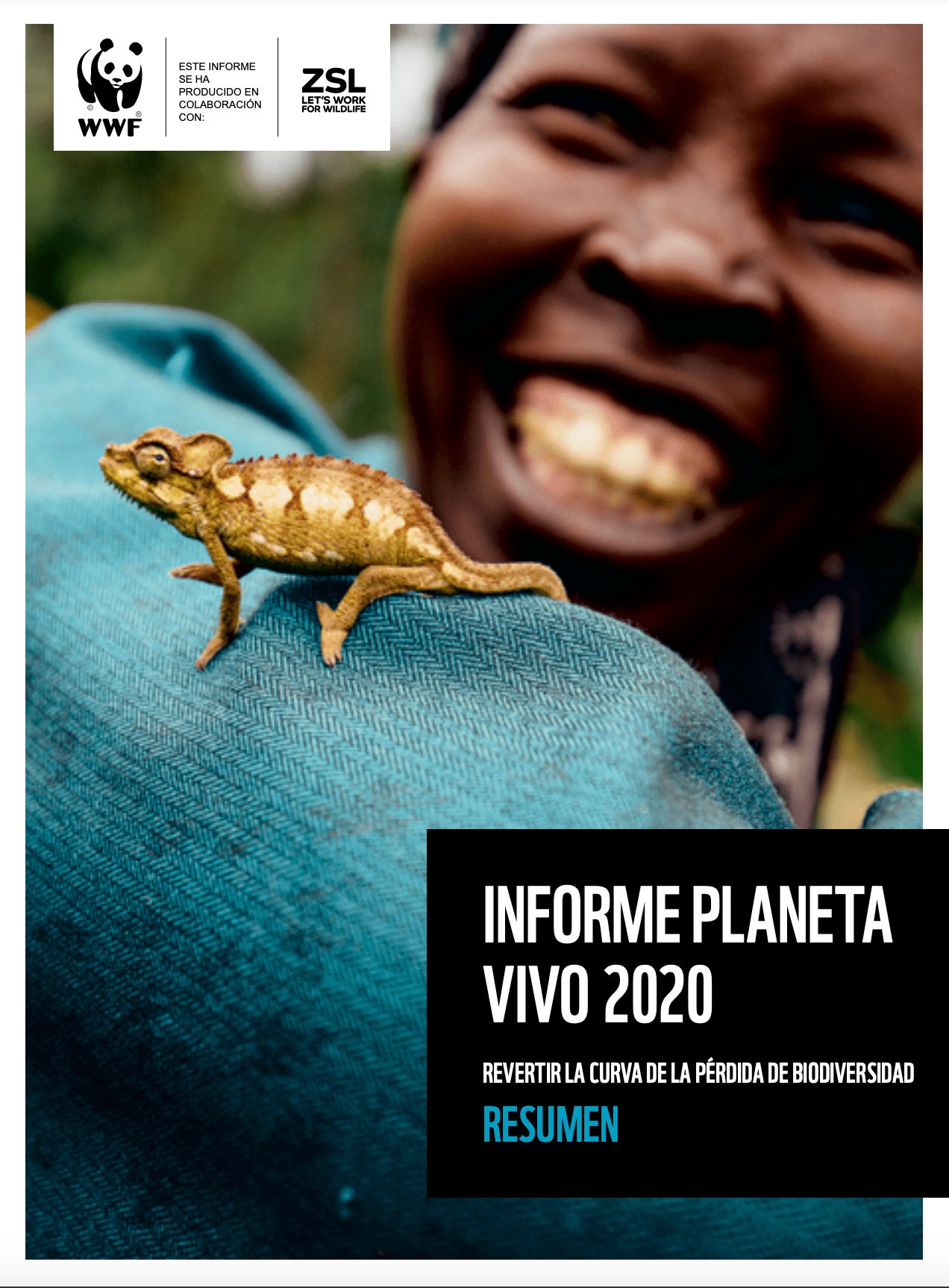31 Aug Mobilizing private finance for nature
A new World Bank Group (WBG) report ‘Mobilizing Private Finance for Nature’ looks at the current state of play for private finance for biodiversity and ecosystem services. The report argues that the financial sector, has a critical role to play in addressing the global biodiversity...

